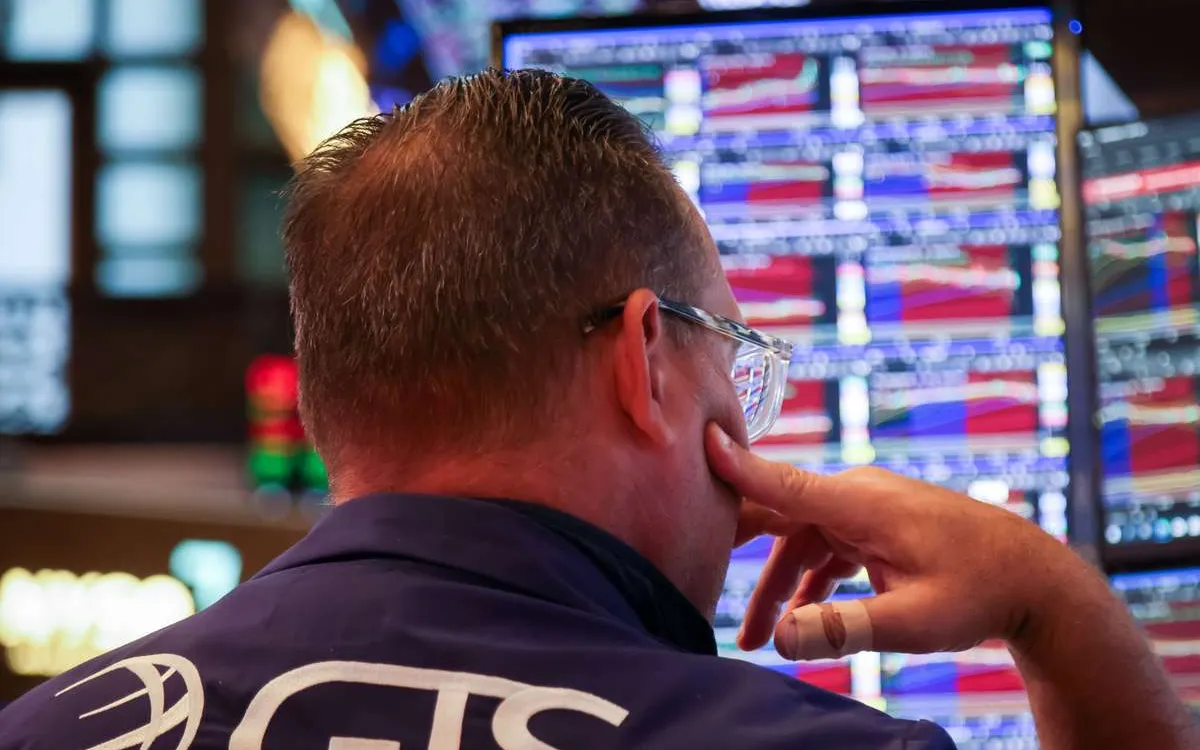
All eyes are on Nvidia as the artificial intelligence chip giant prepares to release its second-quarter earnings report, scheduled to be announced after the markets close on Wednesday. As the world's most valuable public company, Nvidia (NVDA) significantly influences the value of the S&P 500 index, which has more than $1 trillion indexed to it. With a staggering market capitalization of approximately $4.4 trillion, Nvidia represents about 8% of the benchmark index, a full percentage point ahead of its next largest component, Microsoft (MSFT).
Recent options pricing indicates that Nvidia's stock is projected to experience its most considerable post-earnings move in over a year. This potential stock fluctuation could lead to a market reaction resembling the impact of critical economic data rather than just a single company's earnings report. Options data suggests traders expect the S&P 500 to move approximately 0.8% in either direction on Thursday, the first day of trading following Nvidia's earnings announcement.
Historically, the S&P 500 has moved more than 0.8% on about one-third of all trading days this year. However, this statistic has been influenced by the tumultuous tariff discussions that affected the markets in March and April, leading the index to experience daily fluctuations of at least one percentage point on numerous occasions. In the relatively calmer second half of the year, the index has moved more than 0.8% roughly one out of every five trading days.
Nvidia's size and market presence are not the only reasons its earnings could impact the entire market. The company has emerged as a bellwether for AI demand, influencing stocks across various industries that benefit from artificial intelligence advancements. The results from Nvidia serve as a crucial indicator for the performance of other semiconductor stocks. For instance, when Nvidia's shares fell over 8% in late February, the benchmark PHLX Semiconductor Index (SOX) dropped more than 6%. This decline was not solely due to Nvidia's substantial 9% weighting in the index; other chipmakers such as Broadcom (AVGO) and Marvell (MRVL) saw their stocks plummet by more than 7% on the same day. Additionally, Applied Materials (AMAT), a chip fabrication equipment manufacturer, also experienced significant losses.
As the definition of what constitutes an AI stock has broadened, so too has Nvidia's influence. Stocks of companies like Constellation Energy (CEG) and Vistra (VST), which have secured major data center contracts with tech giants such as Microsoft and Alphabet (GOOGL), dropped by more than 7% and 12%, respectively, following Nvidia's February results. Furthermore, server manufacturers Dell (DELL) and Super Micro Computer (SMCI) experienced declines of nearly 7% and 16%, respectively, while software provider Palantir (PLTR) saw a drop of 5%.
The ripple effects of Nvidia's earnings report could be even more pronounced now, as AI beneficiaries and the so-called Magnificent Seven stocks comprise a larger portion of the S&P 500 than they did back in February. Notably, Palantir has surged 75% in the past six months, while Nvidia's competitor Advanced Micro Devices (AMD) has gained over 50%. Moreover, Broadcom, one of only nine U.S. companies with a market valuation exceeding $1 trillion, has seen a remarkable increase of more than 35% during the same timeframe.
Nvidia's earnings report comes at a crucial time for the AI trade. Prior to Jerome Powell’s speech at Jackson Hole, which boosted stock prices last Friday, technology and AI stocks were experiencing a challenging week. For instance, Palantir recorded its longest losing streak in over a year last Wednesday. An ETF that tracks the Magnificent Seven stocks fell 3.5% during the first four days of the week. Investor anxiety surrounding a potential AI bubble resurfaced, particularly after an MIT survey revealed that nearly all companies have not realized substantial benefits from their AI investments. Additionally, Sam Altman, the CEO of OpenAI, reportedly commented the previous week that investors had grown "overexcited" about the prospects of AI.